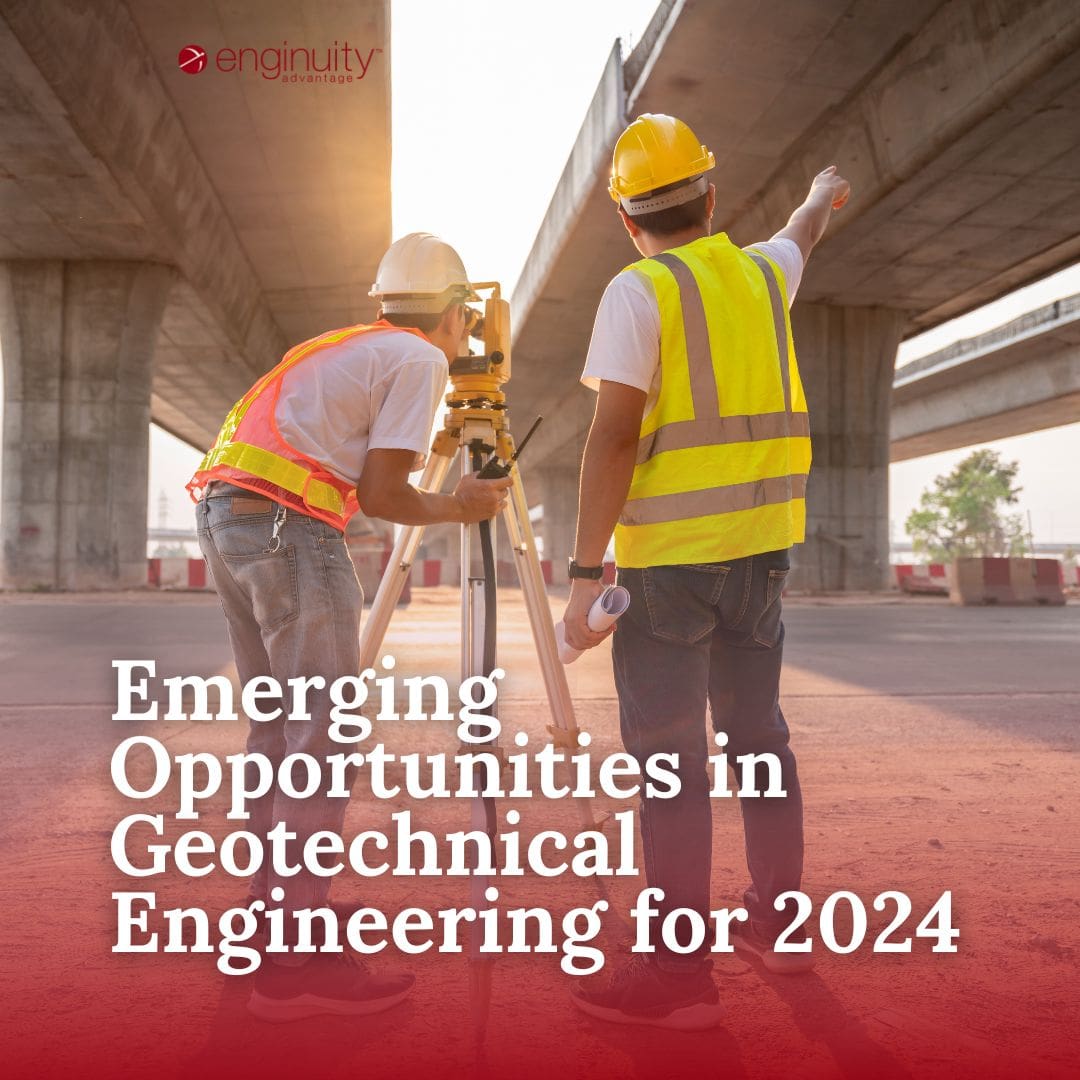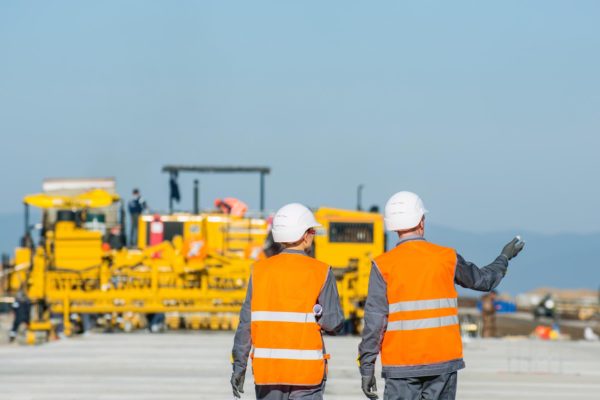Just How a Skilled Tailings Engineer Can Maximize Your Mining Workflow
Wiki Article
Recognizing the Crucial Duty of the Geotechnical Market in Modern Building Projects and Facilities Growth
The geotechnical industry is a cornerstone of modern building and construction and framework advancement, providing vital understandings right into soil behavior that directly affect task end results. With sophisticated soil analyses and ingenious design services, geotechnical specialists not only make sure structural stability yet additionally address sustainability worries amid evolving environmental criteria.Value of Dirt Evaluation
Dirt assessment plays a crucial role in the geotechnical industry, functioning as the foundation for notified decision-making in building and construction tasks. Exact soil analysis is crucial for identifying the suitability of a site for numerous kinds of structures, including domestic homes, commercial structures, and bridges. By examining soil make-up, dampness, stamina, and thickness web content, engineers can prepare for prospective difficulties and reduce dangers related to ground instability, disintegration, and settlement.The analysis procedure generally entails a collection of tests and observations that offer important details regarding the subsurface problems. This data educates the style and building procedures, making sure that structures are improved strong ground with ample support. Moreover, comprehending the soil account enables engineers to choose suitable building methods and materials, enhancing source utilization and decreasing costs.
In enhancement to ensuring architectural stability, soil assessment adds to environmental sustainability. By recognizing potential contamination or adverse effects on bordering environments, designers can carry out techniques to secure these natural deposits. Generally, comprehensive soil analysis is important in the geotechnical area, underpinning the safety and security, performance, and ecological responsibility of construction tasks.
Secret Geotechnical Strategies
A range of essential geotechnical methods are employed to enhance the stability and examine and performance of construction sites. One foundational approach is soil tasting and screening, which allows engineers to determine the physical and chemical residential or commercial properties of the ground. This information is important for making educated choices pertaining to structure style and building and construction techniques.An additional crucial method is website characterization, which involves the thorough assessment of dirt and rock conditions with techniques such as borehole boring and in-situ screening. Strategies like Criterion Infiltration Examinations (SPT) and Cone Infiltration Tests (CPT) provide important data on dirt stamina and stratigraphy.
Ground improvement methods, such as soil stabilization and grouting, are also crucial in boosting the load-bearing ability of weak soils. These approaches can minimize negotiation and enhance overall website problems.
Furthermore, incline security evaluation is vital for recognizing potential landslide dangers and making certain the safety of excavations. This evaluation frequently employs mathematical modeling and limitation balance techniques to anticipate soil behavior under various problems.
Integrating these geotechnical strategies right into construction preparation not just enhances task outcomes yet additionally makes certain the lasting sustainability of infrastructure growth.
Effect On Building Security

In addition, efficient geotechnical design entails applying mitigation strategies for recognized risks. This might include soil stabilization techniques, keeping structures, or drainage systems to minimize hydrostatic stress. By attending to these aspects, building teams can decrease the likelihood of accidents and improve employee safety and security.
Additionally, continuous tracking of website conditions is essential during building. Geotechnical tools can offer real-time information concerning ground motion and security, permitting timely treatments when needed.
Fundamentally, the geotechnical industry plays an essential function in safeguarding building jobs. By focusing on ground integrity and using rigorous evaluation approaches, the geotechnical sector not just shields the workforce however likewise contributes to the durability and dependability of created facilities.
Sustainability in Geotechnical Practices

Moreover, geotechnical engineers are currently employing sophisticated innovations, such as geosynthetics, which improve dirt stability while minimizing the volume of material needed. This not only preserves sources yet additionally brings about less waste generation (geo tech engineer). The assimilation of sustainable design principles into geotechnical design motivates the usage of renewable resource resources in building processes, even more lowering carbon discharges
Additionally, thorough site evaluations are essential for identifying prospective environmental effects prior to building begins. By performing these evaluations, geotechnical professionals can establish approaches that reduce negative results, ensuring conformity with ecological guidelines. Overall, the focus on sustainability within geotechnical methods not just adds to the durability and strength of framework yet also advertises an accountable approach to land and source monitoring. This dedication is crucial for promoting lasting advancement in the modern-day building and construction landscape.
Future Trends in Geotechnical Engineering
Innovation is driving the future of geotechnical engineering, as arising approaches and technologies improve the market. The integration of sophisticated data analytics and fabricated intelligence is readied to revolutionize site investigation and risk assessment, making it possible for designers to make more informed decisions based upon real-time data. Moreover, making use of geosynthetic materials is obtaining grip, supplying lasting solutions that boost dirt security and minimize environmental influence.Another significant pattern is the fostering of automated and robot systems for surveillance and construction procedures. These innovations not just boost precision however likewise enhance security by minimizing human involvement in dangerous atmospheres. In addition, the implementation of Building Info Modeling (BIM) in geotechnical design assists in enhanced partnership among stakeholders, maximizing job distribution and reducing costs.
As environment adjustment positions brand-new challenges, the market More Bonuses is increasingly focusing on resilience and versatility in design practices, making certain framework can endure extreme climate occasions. The recurring fad toward sustainability will certainly drive technology in environmentally friendly products and techniques, straightening geotechnical engineering with more comprehensive ecological objectives. Jointly, these fads will certainly shape an extra reliable, lasting, and durable geotechnical landscape for future tasks.
Conclusion

The geotechnical industry is a cornerstone of contemporary construction and infrastructure growth, providing crucial understandings into soil actions that directly influence job outcomes. tailings engineer.Dirt evaluation plays a crucial duty in the geotechnical market, offering as the foundation for informed decision-making in construction tasks. On the whole, detailed soil analysis is crucial in the geotechnical area, underpinning the safety, efficiency, and ecological duty of building and construction projects
Building and construction security is substantially influenced by geotechnical practices, as the security and integrity of the ground directly affect the general security of a building site.In final thought, the geotechnical market is crucial in modern-day building and construction this page and framework growth, giving critical assessments that ensure architectural stability and safety.
Report this wiki page